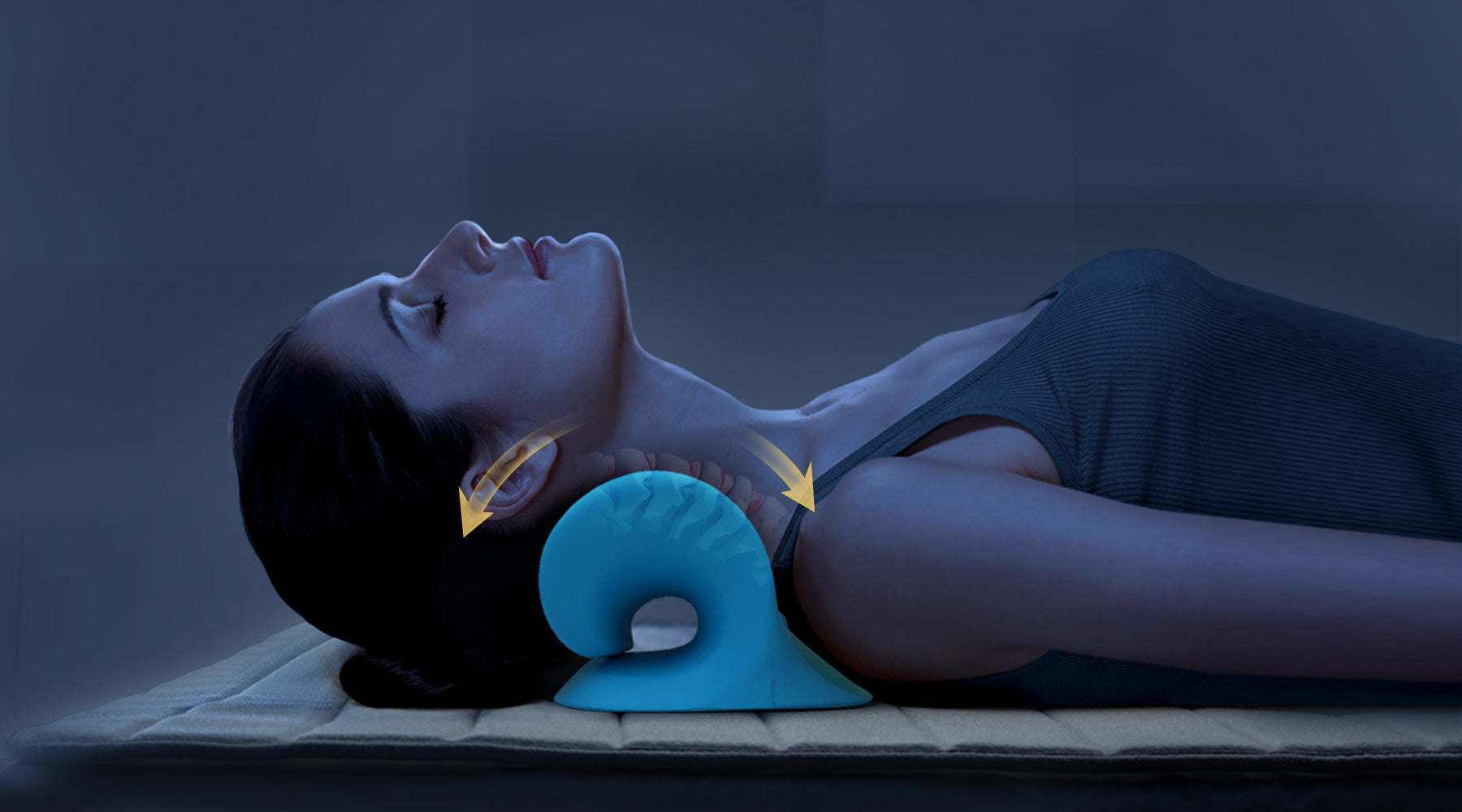Experience the Perks of the Neck Cloud for Neck and Shoulder Relief
Experience the Perks of the Neck Cloud for Neck and Shoulder Relief
Blog Article
The Influence of Stress And Anxiety on Neck Pain: Strategies for Minimizing Stress and Discomfort
In today's hectic world, it's obvious that tension has actually ended up being a common aspect in the start and exacerbation of neck discomfort. The elaborate connection in between stress and anxiety and muscular tissue stress usually leaves individuals looking for remedy for the discomfort that occurs. By exploring targeted strategies aimed at lowering tension and advertising relaxation, one can start to address the origin causes of neck discomfort and work towards a more well balanced state of health. Join us on a journey to unwind the impact of stress and anxiety on neck discomfort and find reliable methods to ease pain and enhance total quality of life.
Comprehending Stress-Related Neck Discomfort
Stress-related neck pain can materialize as stress, stiffness, or pain in the neck and shoulder area. The connection between stress and anxiety and neck pain lies in the body's physiological feedback to anxiety, which can result in muscle mass tension and tightness in the neck muscle mass.

Identifying Common Tension Areas
Regularly experienced by individuals under stress and anxiety, tension areas in the body can provide important understandings into the physical indications of psychological strain. One common stress location is the neck, where stress commonly manifests physically. Tension headaches, stiff neck muscle mass, and limited range of movement prevail symptoms of stress-related neck stress. The shoulders are another usual location where tension builds up. Anxiety can create the muscle mass in the shoulders to tighten, leading to pain and discomfort. In addition, the top back is prone to stress build-up, specifically in people that experience persistent anxiety. Poor pose and extended sitting can exacerbate stress in this field. The jaw is also a typical area for stress-related stress, as numerous individuals clinch their jaw or grind their teeth when worried. Knowing these common tension locations can aid people identify the physical indicators of stress and anxiety and take steps to address them before they rise into chronic discomfort or discomfort.
Applying Relaxation Methods
To properly handle stress-related stress in the body, carrying out leisure techniques is crucial. Leisure methods are valuable devices for reducing neck pain triggered by stress and anxiety. Deep breathing exercises can aid calm the mind and relax strained muscles in the neck and shoulders (neck cloud). Exercising mindfulness meditation can also be useful in easing tension and promoting relaxation. Dynamic muscle mass relaxation, where you systematically stressful and after that unwind different muscular tissue teams, can release built-up tension in the neck area. Furthermore, tasks like yoga exercise and tai chi incorporate both physical motion and leisure, making them effective methods for reducing anxiety and neck pain. Taking normal breaks throughout the day to stretch and relax can protect against muscular tissue stiffness and stress from gathering. By integrating these leisure methods into your day-to-day routine, you can help handle anxiety degrees, lower stress in the neck, and alleviate pain connected with stress-induced neck discomfort.
Incorporating Self-Care Practices
Incorporating self-care techniques is important for keeping general health and managing stress-related neck discomfort effectively. Participating in normal physical task, such as mild stretching exercises or yoga exercise, can assist alleviate tension in the neck and shoulders. Practicing great posture throughout the day and taking frequent breaks from extended resting or screen time can also avoid stress on the neck muscles.
In addition, focusing on ample sleep and establishing a constant sleep routine can contribute dramatically to reducing stress degrees and promoting relaxation. Developing a relaxing bedtime regimen, such as reviewing a publication or taking a warm bathroom, can help prepare the body and mind for relaxed rest. Additionally, preserving a well balanced diet plan rich in a fantastic read nutrients and staying moistened can support overall health and wellness and lower swelling that might intensify neck discomfort.
Including mindfulness practices, such as deep breathing exercises or meditation, can help handle anxiety and promote relaxation. Requiring time for oneself, engaging in hobbies, and establishing limits to shield individual time are additionally crucial elements of self-care that can add to lowering stress and relieving neck discomfort.
Looking For Specialist Aid
Exactly how can people properly resolve persistent neck pain that is affecting their every day life and well-being? Seeking specialist help can be an essential action in managing and minimizing neck discomfort. Consulting with healthcare professionals such as chiropractic practitioners, physiotherapists, or orthopedic specialists can supply useful understandings and individualized therapy plans. Full Article These experts can perform comprehensive evaluations to identify the underlying sources of neck discomfort and advise ideal treatments.
Chiropractics physician concentrate on spinal adjustment techniques to enhance positioning and lower tension in the neck location. Physical specialists use targeted workouts and stretches to reinforce muscles, improve adaptability, and improve total neck function. Orthopedic experts can supply sophisticated medical interventions such as shots or medical choices for severe situations of neck pain.
Verdict

Stress-related neck discomfort can materialize as stress, tightness, or discomfort in the neck and shoulder area. The link between anxiety and neck pain exists in the body's physiological response to anxiety, which can result in muscle stress and rigidity in the neck muscles. Stress frustrations, rigid neck muscles, and limited array of motion are common signs and symptoms of stress-related neck stress. By integrating these relaxation strategies into your day-to-day routine, you can help manage stress levels, lower stress in the neck, and alleviate pain linked with stress-induced neck pain.

Report this page